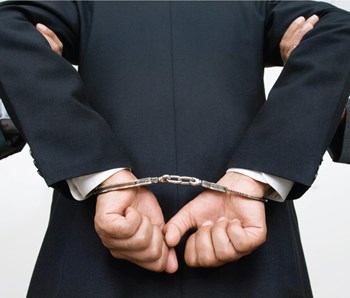
Few things can be as upsetting as discovering that the funds that fuel a co-op or condo have been mishandled—or worse yet, stolen. For residents, fraud undermines their sense of trust in the men and women who oversee and manage the place they call home. For managers, board members and trustees, it can breach the trust that exists between each other, wreaking havoc not only on the bottom line but on the very fiber of the organization itself.
Knowing how to detect and prevent fraud has become even more important to unit owners, managers and boards. Responsibility, transparency and accountability have become the watchwords of financial management, and it’s a sensibility that has made its way to the world of residential housing. In a difficult economy, accounts caution, you have to watch your assets.
It’s Happened Before…
For the co-op and condo industry, the 1990s saw major scandals in major cities including New York, in which disreputable property managers and vendors were involved in kickback schemes and other fraudulent activities, such as creating bank accounts in the manager's name, and not that of the building, so that deposits were siphoned off to the individual rather than the community.
That kind of activity and the prosecutions that followed it put boards and managers on alert. Other headline-grabbing deceits in other industries (such as the Enron scandal) also prompted new safeguards and activities, including the Federal Accounting Standards Board. Despite the changes that have occurred, however, industry experts agree that vigilance is required at all times when it comes to the financial well-being of co-ops, condos and HOAs.
Last summer, a management firm with condominium clients throughout Massachusetts, New Hampshire and Maine was indicted for larceny and two of its executives were arraigned on charges of larceny, conspiracy and false entry in corporate books. According to the Essex District Attorney's office, a year-long police investigation found that the management firm’s owners allegedly “systematically falsified invoices sent to dozens of the company’s clients without the knowledge of the condominium association boards or the laborers whose work was falsely inflated.”
That news followed a May 2015 report that the former chief financial officer at a nonprofit organization that serves adults with learning and intellectual disabilities on Cape Cod pleaded not guilty to embezzling about $70,000 from a condominium association funded by the clients’ families. The former CFO, who had also served as treasurer of his condo association, was indicted on three counts of larceny over $250 by “single scheme, false statement to obtain a credit card and unauthorized use of credit cards.” And these instances are by no means rare.
Issues at Hand
Basically, there are two types of fraud: “on the book” fraud, which involves activities such as commingling bank accounts, creating fictitious vendors, borrowing funds and creating fictitious employees; and “off the book” fraud—which usually encompasses kickback schemes, such as money given to the superintendent or a property manager in return for steering a building community to a certain vendor.
According to Thomas M. Feeley, president of Feeley & Driscoll, PC, a certified public accounting and business consulting firm based in Boston, many kinds of accounting fraud are difficult to prove, such as the aforementioned gratuities known as kickbacks. Also at fault are poorly written contracts, owing to the propensity of ill-defined terms in a contract to facilitate, without detection, variously shady, backhanded dealings.
Stopping Before it Starts
With fraud, by the time money has been lost, the proverbial horse is well out of the barn. The best way to prevent it is to stop it before it starts. There should be natural checks and balances in place—roadblocks established in the way, so that the person thinking of doing the deed is going to know it won’t be easy.
One way of creating those checks and balances is to have a thorough review process when it comes to anything and everything related to the financial aspects of the building. Thomas P. Foley II, manager at Pieciak & Company, P.C., a certified public accounting and consulting firm which has offices in Brattleboro, Vermont and South Hadley, Massachusetts, says that in most cases, accounting fraud is uncovered not only by an accountant but by a combination of a board member and his or her accountant.
Reports should be reviewed constantly, the experts say. Managers and staff should be examining the books in search of errors, and when the board looks at the numbers, they should be checking to see if everything looks as it should. Simply looking to see that another board member or employee has signed off on the numbers is not sufficient.
“You have to have oversight and checks and balances,” says Mindy Eisenberg Stark, CPA, CFE, who owns a Scarsdale, New York accounting firm. “Information is very important to have. People need to spend time and look at the management report.” And that report should be comprehensive, including actual bills and bank statements, not simply the documents generated by management. The seemingly little things—like having checks reviewed by two people—can make all the difference.
It’s important, too, says Stark, who is herself a certified fraud examiner, to make sure that no single individual holds the key to all the financial data. “People become too trusting and sometimes one person becomes too powerful,” she says. In co-ops and condos where millions of dollars may be at stake, the risk is too high to simply hand over control to one individual.
Another tip from the professionals: Ask common sense questions. A board that doesn’t ask questions or review reports is most often the one that gets in trouble.
It’s especially important for the board’s treasurer to be alert and on task at all times. Protecting the assets of the co-op or condo is the responsibility of the whole board, but often, the treasurer is the one with the title. He or she needs to be vocal and engaged.
Hand in hand with asking questions comes the need to go through proper channels. When hiring a vendor, it’s imperative to get and see proposals from a variety of vendors and not rely simply on the property manager handing in a report. The board should know where those cost estimates came from and who supplied them.
It’s also important, Stark says, to make sure that accounts are never co-mingled with anyone else’s money. Some management companies may maintain large holdings with funds from several buildings in one account. That could be a dangerous situation, Stark contends, and should be avoided.
Perhaps most important of all, it is imperative for boards and management to create an atmosphere of zero tolerance among staff, volunteers and vendors. Without it, people who suspect fraud may fear coming forward and giving voice to their concerns. They may worry about the consequences of sticking their necks out. That zero-tolerance atmosphere also needs to include an acceptance of the idea that fraud can indeed happen. And in the case of the New England management firm mentioned above, police were tipped off to the alleged fraud by “multiple former employees” who, it appears, did embrace that zero-tolerance stance.
As distasteful as it is to think of someone breaking your trust and breaking the law, it can happen and it does. Risk assessments can help board members and managers spot potential trouble areas before they tempt anyone into dark deeds. Many accounting firms now provide risk assessments, shining light on areas of potential risk.
By knowing where risk exists, controls can be put in place to eliminate or reduce it.
“The auditor has to be aware of the risk environment and know the chances of fraud,” Stark says. “They need to know the internal control structure of the management company and board.” The more knowledge, the less chance of trouble.
Feeley offers that it’s just as important for the board of trustees to have a healthy relationship with the outside accounting firm.
“The accounting team should meet with the board of trustees once or twice per year,” he warns, “or else they answer to the management company and they’re not a ‘watchdog’ at all for the trustees. It’s also important that the boards themselves have internal controls: for example, that the checks and bank statements are sent directly through someone on the board, so he or she can look them over when they come in, and also make sure someone does a bank reconciliation on them.”
Given the prevalence of cash embezzlement—monthly condo fees being diverted or not deposited at all—Foley suggests that one of the main safeguards against fraud is never accepting cash: “Unit owners cannot pay their condo fees in cash, but rather checks made out to the association. This is key.”
Also crucial is the separation of duties: “Whoever is handling the receipts of the condo fees,” Foley says, “should not be the person doing the accounting and recordkeeping for assessments receivable.”
If It Happens to You
What happens when evidence of potential fraud surfaces? Where does a board turn? “The first step is to speak to their accountant and speak to their lawyer,” says Stark. “Listen to what the concern is. Research the concern.”
If you suspect trouble, bring it to your professionals and have an evaluation made. Other than in cases where there may be a conflict of interest, bring it to your team.
Part of that evaluation may require bringing in a forensic accountant. Forensic audits differ from regular audits in that they are designed specifically “to follow the trail of money to detect fraud,” Stark says. In recent years, as the accounting profession has instituted new techniques and methods for reducing fraud in all areas of business, this type of forensic tool has become more commonplace and ubiquitous.
When it happens, fraud can be devastating for everyone involved, from the unit owners and shareholders to the bookkeeper and manager to the board of trustees and the treasurer. With the proper safeguards, the right checks and balances and an attitude of vigilance, however, the worst can be avoided. And there’s no cost too high for that.
Liz Lent is a freelance writer and a frequent contributor to New England Condominium. Associate editor Pat Gale contributed to this article.






Leave a Comment